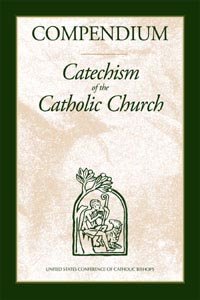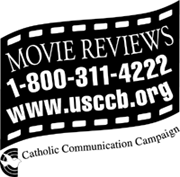Hands down, my favorite religious periodical out there is
First Things, which bills itself as a "journal of religion, culture and public life." It's good stuff, and every issue is packed with much "meatier" articles than you'll find in a lot of other Catholic magazines.
This past October's issue featured a very long article by Joseph Bottum titled "
When the Swallows Come Back to Capistrano: Catholic Culture in America." The gist of the article is a trace in the decline of a Catholic culture in America and the rise of post-Vatican II in-fighting between often self-described liberals and conservatives.
His contention is that, through mysterious ways, a new Catholic culture is beginning to come together, like loose stars forming a galaxy -- and part of the core and start of that galaxy is opposition to the 1973 Supreme Court ruling on abortion. "The result," Bottum claims, "is the beginning of a new culture: a new Catholicism that, at its best, simply bypasses the stalemates of the 1970s."
While perhaps a simplistic theory, it's got many good points and insights.
The whole article is well-worth reading and pondering, and is available free online. Of particular note to me, as a young Catholic, was what he said about us. He argues that there is a growing disconnect with young Catholics from older Catholics and leaders -- even bishops.
I quote quite liberally because he says it better than I could:
These were serious Catholic kids—daily communicants, pro-life marchers, soup-kitchen volunteers, members of perpetual-adoration societies. They were showing off a little for their guest, no doubt: taking stronger positions than they actually feel, arguing for the joy of arguing, the way college students do. It was revealing, however, that when one of them shyly mentioned the Tridentine Mass at the renegade chapel in Garden Grove, the others shouted her down.
Sure, they agreed, pretty Masses are better than ugly ones, and they all preferred high-churchy smells and bells to guitar services and liturgical dance: the things their parents’ generation, poor souls, fondly imagined would “engage today’s youth.” But the radical traditionalists seemed cut from the same cloth as the radical revisionists—and the students dismissed all that kind of 1970s stuff as simultaneously boring and infuriating: the self-obsession and self-glorification of the two sides that, between them, had wrecked Catholic culture in this country. We live with a million aborted babies a year, daily scandals of corruption in the Church, millions of uncatechized Catholic children, and this is what those tired old biddies are still squabbling over?
“You remember how, you know, the old hippie types used to say, ‘Never trust anyone over thirty’? Well, they were right. Only it was their own generation they were talking about,” the thin, quiet one in the back announced as we pulled up to the hotel. “You can see it clearly out here in California. That whole generation of Catholics in America, basically everybody formed before 1978, is screwed up. Left, Right, whatever....The best of them were failures, and the worst of them were monsters.”
- - - - - - -
This quick, irritated impatience seems common in the emerging Catholic culture. You find it in the parishioners of the Polish Dominicans working at Columbia University, and in the conservatives gathered around the political theorist Robert George at Princeton. For that matter, it is present among the graduate students at such places as Notre Dame and Boston College, and among the younger theology professors around the country. The public figures of the new culture—the Catholic lawyers, magazine writers, and think-tank analysts—have it in spades: an intolerance, an exasperation, with everything that preoccupied an entire generation of American Catholics.
- - - - - - -
Still, in at least one sense, these Catholics seem right to reject the battles of the recent past. The greatest work of John Paul II may prove his reintegration of Vatican II into the history of the Catholic Church: a swerve, a changing of the trajectory that both sides in the 1970s had assumed could not be altered. Far too many in those days believed the Second Vatican Council had definitively broken the Catholic Church from its past. Whether they wept or cheered, whether they were traditionalists or spirit-of-Vatican-II reformers, they acted as though the new Church were no longer in continuity with the old Church.
I find myself all too often getting pulled into these battles, taking various side, letting myself get angry and worked up...I find myself stepping back -- or yanking myself back -- into remembering my "JPII heritage." Ultimately Bottum's point about the pro-life movement gathering together a new Catholic culture that is ready to change our culture is tied up with the efforts of Pope John Paul the Great to preach an authentic vision of the Second Vatican Council and of the nature of man.
For me as a young Catholic, and for the many, many other young Catholics I know, this is what it's about: seeking through Jesus Christ the wisdom that answers the two great questions we have, that is, Who is God, and What is man? College students embark on their journey with these questions and there is a certain sickness that I feel when I think of how many get the wrong answers -- even by Catholic priests and teachers of the faith.
Pope John Paul was, for so many of us, the living icon of this answer. He was the genuine leader in whose shadow you could trace the life and teachings of the One he followed. More and more Catholic young people are growing up with the benefit of his scholarship: we are people whose whole lives have been informed by a rich, Catholic view of who we are and how we are to live. For us, the Church's answers to the hot-button questions of contraception, homosexuality, abortion, ESC research, the death penalty and female ordination are beautiful -- and more than that, they are true. To say that the teachings on those subjects in particular are true and beautiful is more than a little scandalous to many older Catholics I know -- almost as though I've crossed some invisible line that has actually called my Christianity into question.
One of the hallmarks, in my opinion, of this new, growing breed of young Catholics is not so much the rejection of the warring camps that Bottum suggests, but the simple joy with which they embrace Jesus Christ and his Church, the happiness with which they live the tenets of our faith. Those same warring camps are always trying to drag us into their battles -- trying to make us fight on their terms and fit their stereotypes and have their motivations.
But another hallmark is what Bottum mentions and what many of the saints had: the "get out of my way" attitude toward silliness and stalemate rivalries that is what Christ demands. The world is in danger, as it always is: the devil and sin stand to devour the souls of our brothers and sisters, and we must stand in their way -- we must sacrifice and battle and answer the heavenly call to action. There is no time for us to fight a battle that isn't ours and that distracts us needlessly from the task.
In the end, we're trying to be saints and to follow Jesus Christ and prophetic voices like that of Pope John Paul the Great -- we shouldn't care about all the hip buzz terms in lay ministry or whether we're for a "cultic" priesthood or if we like to be under the thumb of Rome or if we lack a pluralistic mindset or why we're too divisive or any of the other endless arguments...we're trying to live for Christ and to love what Christ loves, even those parts that make our culture hiss. And power politics and Church theories and doctrinal fighting cannot stop that.








